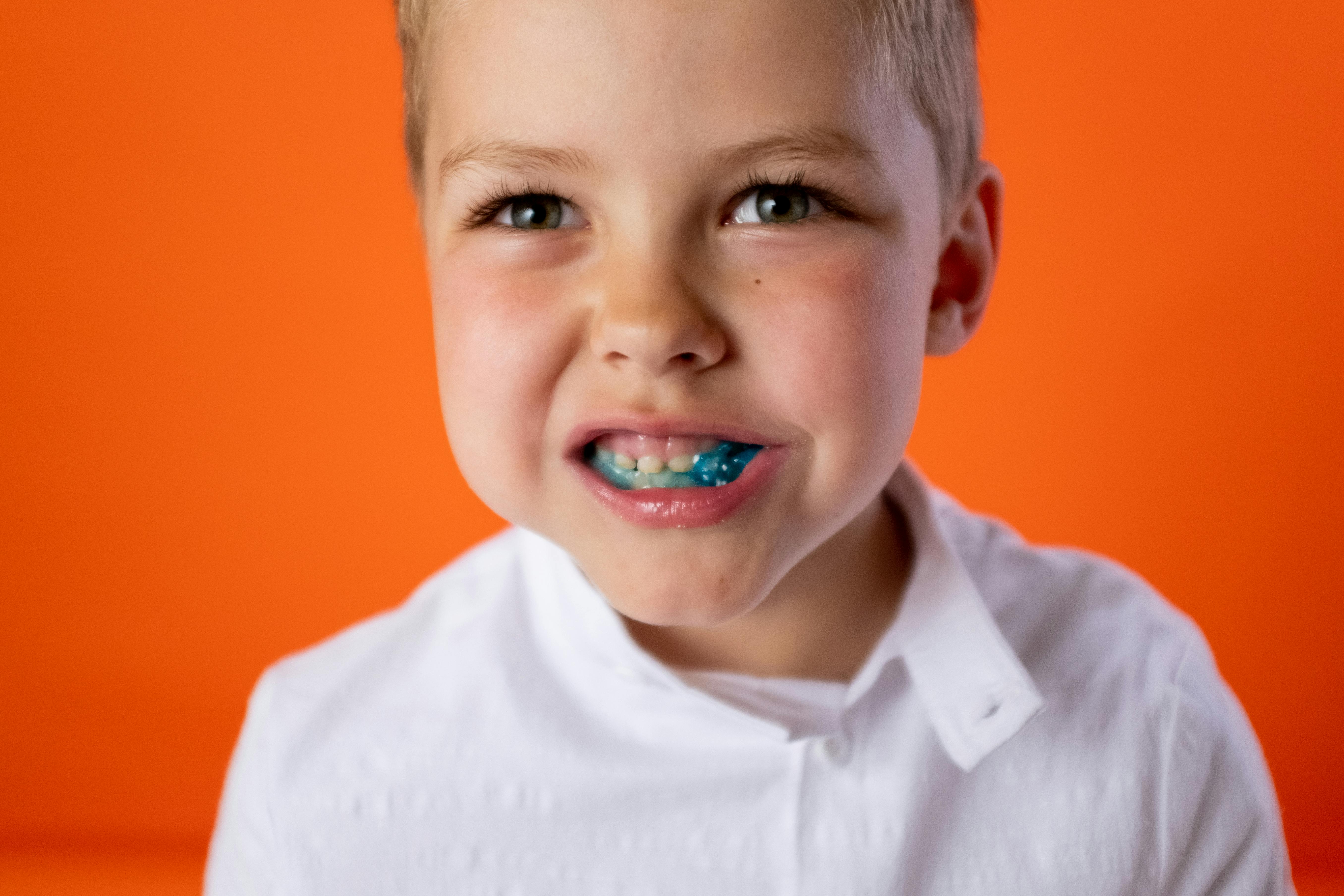Can eating ice damage your teeth? This is a common question asked by many people, especially those who enjoy eating ice cubes or crunching on ice. Although it may seem harmless, the answer is yes. Eating ice can cause serious dental problems, including cracked teeth, weakened enamel, and sore jaw muscles. In this article, we will discuss the potential risks associated with eating ice and what you can do to protect your teeth.Eating ice can have a negative impact on teeth. Ice is very hard and can damage tooth enamel when it is chewed. This can lead to chips, cracks, and other forms of dental damage. The cold temperature of the ice can also cause sensitivity to the teeth. Additionally, eating ice may increase the risk of cavities because it increases the bacteria in the mouth, which can lead to decay. Therefore, it is best to avoid eating ice in order to protect your teeth from any potential damage or decay.
Short-Term Effects of Eating Ice on Teeth
Eating ice can be a refreshing way to cool down on a hot day, but it can have damaging effects on your teeth. Ice is much harder than many foods, and when it is chewed, it can cause tiny fractures in the teeth. This can cause enamel erosion and tooth sensitivity in the short term. Eating ice has also been linked to an increased risk of cavities. The cold temperatures can shock the teeth, leading to weakened enamel that makes them more vulnerable to decay.
Additionally, constantly chewing on hard objects such as ice cubes can damage the gums and cause irritation. This may lead to gum recession or inflammation if not properly managed. Chewing ice may also affect the alignment of the teeth by putting undue pressure on them, leading to misalignment or abnormal wear of the enamel.
In order to protect your teeth from damage due to eating ice, it is important to practice good oral hygiene and avoid excessive chewing of hard objects. If you notice any sensitivity or discomfort in your teeth after eating ice, consult your dentist for advice on how best to manage your symptoms.
What Are the Long-Term Effects of Eating Ice on Teeth?
Eating ice can have a variety of long-term effects on teeth, depending on the type and quantity of ice being consumed. For instance, eating large chunks of ice can cause chipping or cracking of teeth. This can lead to more serious dental problems such as decay, cavities, and even tooth loss. Furthermore, the coldness of the ice can cause sensitivity to hot and cold beverages or foods.
The primary long-term effect that eating ice has on teeth is enamel erosion. The enamel is the outermost layer of tooth structure that protects the inner layers from damage. When it is eroded away, the inner layers become exposed and more vulnerable to further damage. This could lead to pain and discomfort as well as discoloration of teeth due to staining from food and beverages.
In addition, eating ice can also affect the gums surrounding the teeth. Ice cubes contain sharp edges that can irritate and inflame gum tissue when they come into contact with it. Over time this irritation can lead to gum disease if allowed to go unchecked for too long.
Overall, it is best to avoid eating ice whenever possible in order to protect teeth from any potential long-term damage it may cause. If you do choose to eat ice, make sure it is in small pieces that won’t cause chipping or cracking of teeth and take extra care when chewing it in order to protect gum tissue from irritation by sharp edges.
Can Eating Too Much Ice Cause Tooth Decay?
Eating too much ice can potentially cause tooth decay. When ice chips become lodged between the teeth and gums, it can erode the enamel on the teeth and create a pathway for bacteria to enter the tooth. If left untreated, these bacteria can cause cavities and tooth decay. Additionally, if a person chews on hard ice cubes or ice chips, they could chip or crack their teeth.
It is important to note that eating too much of anything can cause health problems if done in excess. Eating too much sugar, for example, can lead to cavities. But when it comes to ice specifically, it is not considered an acidic food that would cause enamel erosion. Instead, it is the sharpness of the chips that can put your teeth at risk for damage and decay.
If you have a habit of eating a lot of ice chips or cubes, there are ways you can protect your teeth from potential damage. First, try to limit your intake of ice and make sure it isn’t too hard or sharp when you bite into it. Next, after eating an icy treat, swish water around in your mouth to remove any remaining particles before brushing your teeth. Finally, visit your dentist regularly for cleanings and check-ups to ensure your teeth are healthy and strong.
How Does Eating Ice Lead to Tooth Damage?
Eating ice can cause tooth damage, as it has the potential to chip, crack, or break a tooth. This is because the hardness of ice is comparable to that of a hard candy, and when it comes into contact with teeth, it can cause them to fracture or chip. Ice is especially hazardous for people who have weakened enamel due to dental decay or cavities. Additionally, chewing on ice can lead to a condition called bruxism, which is a form of teeth grinding that causes damage over time.
Furthermore, eating ice can be damaging to the gums and jawbone due to the cold temperatures of the ice. The extreme coldness can cause inflammation in the gums and lead to jaw pain if done regularly and for long periods of time. In addition, eating too much ice has been linked to an increased risk of developing gastric problems such as stomach ulcers.
It is important for individuals who eat ice regularly to be aware of the potential risks associated with this habit in order to avoid any serious dental damage or other health issues. It is recommended that individuals avoid chewing on hard foods such as candy and ice cubes in order to protect their teeth from any possible damage.

Can Eating Ice Lead to Cracked or Chipped Teeth?
Eating ice can cause serious damage to your teeth, leading to cracked or chipped teeth. This is because ice is very hard, and when you bite into it, the force of your bite can be too much for your tooth enamel to handle. Your tooth enamel is the outermost layer of protection for your teeth, and it’s designed to protect them from damage caused by things like chewing and biting. If you put too much pressure on it by biting down hard on something like ice, it can crack or chip.
Cracked or chipped teeth can be very painful, and they can also lead to more serious dental issues if they’re not treated properly. When a tooth is cracked or chipped, the inner layer of the tooth may become exposed, which can lead to bacterial infection and further damage. In extreme cases, a cracked or chipped tooth may need to be extracted in order to prevent further damage.
To avoid cracked or chipped teeth caused by eating ice, it’s best to avoid eating ice altogether. If you do decide to eat ice, make sure you chew it slowly and carefully in order to minimize the pressure placed on your teeth. Additionally, make sure you visit your dentist regularly for routine checkups so that any underlying dental issues can be identified early on before they become serious problems.
Does Eating Ice Make Your Teeth More Sensitive?
Eating ice can cause your teeth to become more sensitive. This is because the extreme cold temperature of the ice can cause damage to the tooth enamel, which is the outer protective coating of your teeth. When the enamel is damaged, the teeth are exposed to temperatures and foods that would normally not cause discomfort. The sensitivity can range from mildly uncomfortable to very painful. The pain may last for a few seconds or even linger for hours after eating ice.
Another way eating ice can make your teeth more sensitive is by causing tiny fractures in the tooth enamel. These fractures weaken the enamel and expose nerve endings inside the tooth, leading to increased sensitivity when consuming hot or cold foods and drinks. Additionally, it can also lead to cavities forming over time if left untreated.
It is important to remember that eating ice does not necessarily mean you will have sensitive teeth, but if you are prone to it then it may be best to avoid eating ice altogether. If you do find yourself with sensitive teeth, there are treatments available such as using fluoride toothpaste or having a dental professional apply a special bonding agent to your teeth which can help reduce sensitivity and rebuild any lost enamel.
In conclusion, eating ice can make your teeth more sensitive due to damage done to the tooth enamel as well as tiny fractures forming in it which expose nerve endings inside of the tooth. It is important to be aware of this potential side effect of consuming ice so that you can take steps towards preventing further damage and maintaining healthy teeth.
Is Eating Large Amounts of Ice Bad for Your Teeth?
Eating large amounts of ice can be bad for your teeth. This is because ice is a hard substance, and it can wear away at the enamel of your teeth over time. Additionally, when you crunch on ice cubes, you put a lot of force on your teeth that can cause them to crack or chip.
Ice also contains bacteria that can cause tooth decay. The longer pieces of ice linger in your mouth, the more bacteria and acid will accumulate on your teeth, which can damage enamel and lead to cavities.
Crushing or chewing large amounts of ice may also increase your risk for dental injuries such as cracked or chipped teeth, or even broken jawbones. To protect your teeth and gums from these injuries, it’s best to avoid eating large amounts of ice.
It is important to note that if you do choose to eat large amounts of ice, it’s best to use a straw so the pieces don’t come into contact with your teeth directly. Also make sure to rinse your mouth out with water after eating any type of hard food item like ice cubes in order to remove any bacteria or acid that may have accumulated on the surface of your teeth.
Overall, eating large amounts of ice can be bad for your teeth and it is important to take preventive measures such as using a straw and rinsing with water after consuming it in order to protect them from damage.

Conclusion
Eating too much ice can certainly damage your teeth. It can cause enamel erosion, tooth sensitivity, and other dental problems. Therefore, it is important to practice moderation when consuming ice and other foods that are cold or hard in texture. It is also wise to visit your dentist regularly for regular check-ups and cleanings to ensure your teeth remain healthy.
By taking these few simple steps, you can ensure that you are able to enjoy the sweet indulgence of ice without compromising your oral health. Ultimately, the key is moderation and regular dental care in order to keep your teeth healthy while still enjoying the occasional treat.
